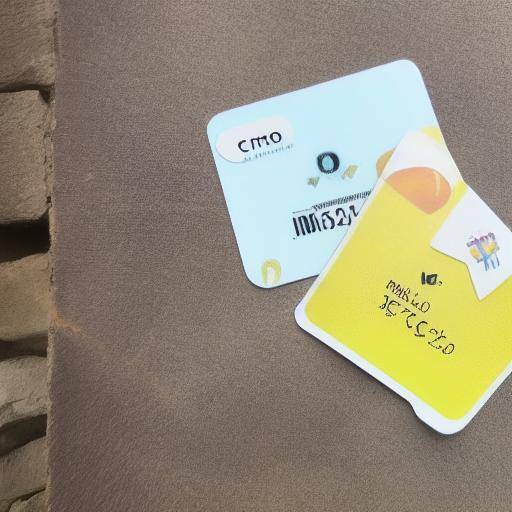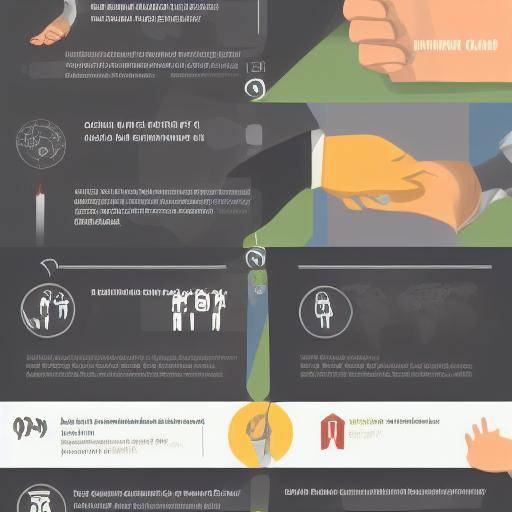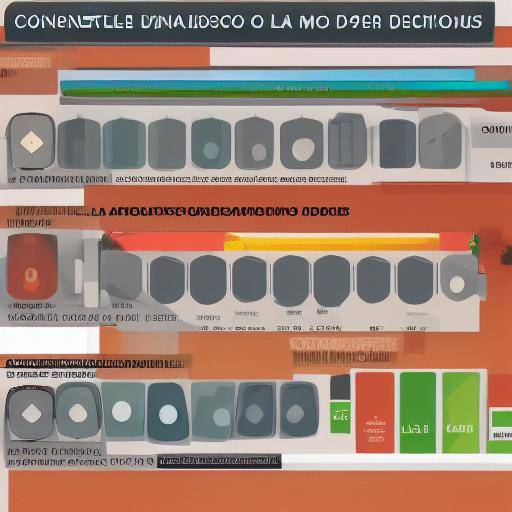
Using credit cards is a common practice in everyday life, but choosing the best credit card for you can be overwhelming with the wide range of options available. However, with proper evaluation, establishing clear criteria and making informed decisions, you can choose the card that suits your financial needs. In this guide, we will explore the essential steps to select the best credit card, as well as key factors to consider to make a successful decision.
Introduction
The use of credit cards has revolutionized the way people handle their personal finances. They offer convenience, security and ability to make online purchases and transactions, as well as accumulate benefits and rewards. However, with the variety of cards available, it is essential to understand how to choose the most suitable option for your financial needs. In this guide, you will learn to evaluate your needs, establish clear criteria and make informed decisions by choosing the best credit card for you.
Assessment of your financial needs
The evaluation of your financial needs is the first crucial step in choosing the right credit card. Analyze your spending habits, reward preferences and short- and long-term financial goals. If you travel frequently, a travel benefit card may be appropriate. On the other hand, if you are looking to improve your credit history, a card designed to build credits can be more appropriate.
To understand your needs, consider the following questions:
- What is my main objective when you get a credit card?
- What is my monthly budget and how do you align with the fees and charges associated with different cards?
- What kind of rewards or benefits are more appealing to me, such as cash return, air miles or reward points?
Clear criteria established
Once you have assessed your financial needs, it is essential to establish clear criteria for selecting your ideal credit card. Some of the key criteria to be considered include:
- Interest rate: Evaluate interest rates for regular purchases, balance transfers and cash advances.
- Annual charges: Consider if you are willing to pay an annual fee for certain cards that offer additional benefits.
- Rewards and benefits: Examine the reward options, such as air miles, cash return or redeemable points, and determine which are most valuable for you.
- Additional protections and benefits: Find cards that offer protections such as travel insurance, extended guarantees and fraud protection.
- Reputation of the card issuer: Investigate the reputation and quality of the customer service of the card issuer.
Informed decision-making
Finally, make an informed decision by choosing the best credit card for you. Consider several aspects, including:
- Card comparison: Compare the options available on the market and select the one that best matches your needs and criteria.
- Request and approval: Once you have chosen the desired card, follow the application process and wait for approval.
- Responsible management: Use your credit card responsibly, paying your bills on time and not exceeding your credit limit.
Remember that judicious use of a credit card can help build and improve your credit history, provide financial flexibility and provide additional protection in your daily purchases.
Conclusion
Choosing the best credit card for you can be a challenging process, but when evaluating your financial needs, setting clear criteria and making informed decisions, you'll be on your way to select the most beneficial option. By following these basic steps, you can make the most of the benefits and rewards offered by a credit card, while managing your finances responsibly.
Frequently asked questions
How can I determine if a credit card is suitable for my needs?
The best way to determine the suitability of a credit card is to evaluate your spending habits, financial goals and reward preferences. By understanding your needs, you can select a card that matches your financial goals.
What characteristics should I consider when setting criteria for the selection of a credit card?
By setting criteria for choosing a credit card, consider the interest rate, annual charges, rewards and benefits, additional protections and the reputation of the card issuer. These factors will help you identify the right card for you.
What is the importance of making informed decisions when choosing a credit card?
Making informed decisions by choosing a credit card allows you to select an option that matches your financial needs and will provide you with the greatest benefits. By comparing cards, applying for the most appropriate and managing it responsibly, you can maximize its value.
How can I avoid common traps associated with credit cards?
To avoid common traps associated with credit cards, it is essential to carefully review terms and conditions, use the card in a responsible way and pay your bills on time. Also, avoiding overexpenditures and controlling the use of your card will help maintain sound financial health.
What is the difference between a credit card and a debit card?
A credit card allows you to purchase using a preset credit limit, while a debit card uses funds directly from your bank account. Credit cards usually offer additional rewards and benefits, while debit cards are linked to your available balance.
What are the most common reward options associated with credit cards?
The most common reward options include cash returns, cash collections for awards or air miles for travel. Evaluate your personal preferences to determine what kind of rewards would be most valuable to you.
In conclusion
By choosing the best credit card for you, it is essential to conduct a thorough evaluation, establish clear criteria and make informed decisions. By understanding your financial needs and preferences, as well as the terms and conditions associated with different cards, you will be in an optimal position to select an option that matches your financial goals. Remember that responsible management of your credit card can provide you with financial flexibility and significant rewards while helping build a solid credit history.
Be sure to carefully review the available options and choose the card that best suits your individual needs.






















































